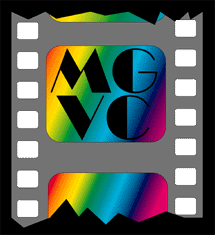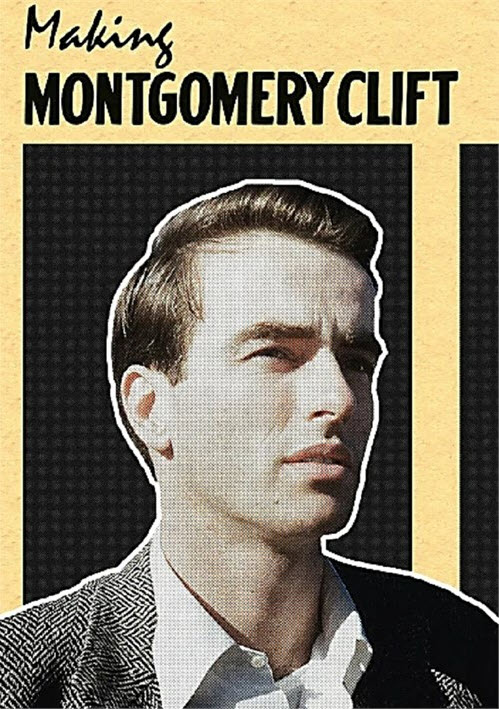(2019, 88 min)
Country: U.S.
Director: Robert Clift & Hillary Demon
Studio: 1091 Media
Language: English
SYNOPSIS: Montgomery Clift was one of the most influential actors in the history of cinema, bucking traditions on and off screen, but countless biographies have reduced him to labels like tragically self-destructive and tormented about his sexuality. Now, his nephew Robert Clift and Hillary Demmon rigorously examine the flawed narratives that have come to define Monty's legacy. Drawing on interviews with family and loved ones and a rich collection of unreleased archival materials from Monty and his brother, Brooks Clift, this fresh portrait of the actor's passions, contributions and commitment to living and working in his own way gives one of Hollywoods underappreciated legends his due.
REVIEW:
When Montgomery Clift refused to play the studio game in the '40s and '50s, it was the only game in town for actors. He wouldn't sign a contract, he dropped out of Sunset Blvd. just before shooting began, and the many films he turned down included Bridge on the River Kwai, East of Eden and On the Waterfront. Because his talent was as dazzling as his beauty, Hollywood met him on his exacting terms, and even with a filmography that numbers fewer than 20 features, his groundbreaking screen performances (four of them Oscar-nominated) are indelible.
But the legacy of one of the screen's greatest actors gave way to tabloid melodrama with his death at 45: Clift became the embodiment of tormented homosexuality, reportedly conflicted over his identity and committing "slow suicide" by booze and pills. He was queer tragedy personified, cast in 35mm amber. Blurring the line between his life and his work, some people were convinced that his anguished performance in Judgment at Nuremberg wasn't even acting, just a nervous breakdown caught on film.
With the revelatory documentary Making Montgomery Clift, filmmakers Robert Clift (born eight years after his famous uncle's hyper-mythologized 1966 death) and Hillary Demmon compellingly deconstruct the pop psychology that reduced a life and an extraordinary career to a Freudian cliche. Beyond its eye-opening archival material, the flawed but rich mix of personal history and showbiz annals is an illuminating reminder of how quickly the first (or best-promoted) story becomes the official story, and how easily biographers' career-boosting conjectures are calcified into "fact."
Co-director Robert Clift is the film's onscreen searcher, heard in incisively written voiceover and seen poring over an astounding, and often poignant, assortment of Clift family memorabilia, items that go well beyond the usual photo albums and home movies. Both Montgomery Clift and his older brother — the filmmaker's father, Brooks Clift — obsessively recorded phone calls, providing a wealth of material for the documentary. The recordings include Brooks' conversations with Patricia Bosworth, one of the film's interview subjects and the author of a 1978 biography of Clift that became the mother lode for future chroniclers. Her book, with its questionable conclusions and careless conflation of homosexuality with pederasty, has been the inspiration for many unproduced biopics, including one that Sidney Lumet wanted to make, not to mention a song by the Clash. And so the punk quartet got it as wrong (or as incomplete) as anybody.
Propelled by a superb selection of vintage clips and home movies, adroitly edited by co-director Demmon, the film unravels the accepted wisdom that Clift's life was one of inner conflict and painfully guarded truths. In footage of him at leisure, his joy and exuberance light up the screen. He might not have been "out" — who was in those benighted times? — but his intimates testify that he was anything but closeted. By refusing to sign a studio contract, he was not only maintaining his artistic independence but protecting his private life from the kind of show marriage, like Rock Hudson's, that the Hollywood publicity machine insisted on for gay stars.
Especially vivid and affecting are the recollections of two men who had significant relationships with Clift, both of whom have died since they were interviewed for the film. Jack Larson (best known, to his chagrin, as Jimmy Olsen on the '50s TV series Superman) recalls with delight the surprise kiss that began his relationship with Clift. The length of their time together isn't spelled out. Nor is that between Clift and Lorenzo James, who was living with the actor when he died and has been variously identified as Clift's "nurse" and, in Bosworth's cringe-inducing wording, "black male servant." With heartfelt modesty, James couldn't bring himself to go before the cameras, but his offscreen presence in audio interviews is powerfully felt. So too is the way Robert Clift refers to him as "my uncle through Monty."
Determined to counter the prevailing view of Clift as tragic, the directors lean too far away from the shadows, acknowledging only glancingly his problem with alcohol and drugs and dismissing notions that he could be difficult to work with. They offer Brooks' theory that his downward spiral was not a reflection of self-loathing but, in large part, the result of a lawsuit by John Huston over the film Freud (weirdly fitting, given how much armchair psychoanalyzing Clift was subjected to in life as well as death), a legal bind that essentially prevented a committed artist from doing what he loved for four years. But the filmmakers also let us hear the troubling defensiveness, bordering on incoherence, in Clift's voice when he discusses the matter on one of those many taped-for-posterity calls.
There's certainly an element of tragedy in the mission that the actor's brother embarked on, trying to shift the mainstream focus on Montgomery Clift from a breathless portrait of self-destruction to a serious assessment of his work. Brooks' ex-wife, well-known Washington journalist Eleanor Clift, recalls how the press derided his devotion to the memory of his brother. And one of their sons likens Brooks' efforts to correct subsequent printings of Bosworth's biography to "Sisyphus battling the myth-making apparatus." Brooks Clift wasn't able to shift the conversation, but, sifting through the well-catalogued pieces, his son has made a compelling start.
-- Review by Sheri Linden, The Hollywood Reporter (https://www.hollywoodreporter.com/)




